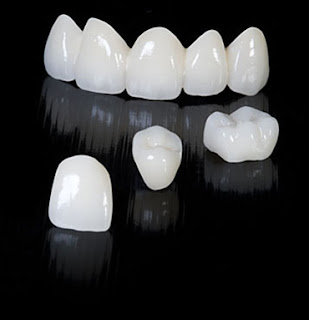Temporomandibular joint disorder is not just one disorder but is a heterogeneous group of disorders, often painful, sometimes painless/symptomless, that affect the temporomandibular joint and the surrounding head & neck muscles. The patho-anatomical dysfunctions of the TMJ have been defined as temporomandibular disorders (TMD), or TMJ disorders. But people (and even healthcare providers) often simply refer to this condition as “TMD.”
TMD is far from a rare disorder. Actually, it’s one of the most common craniofacial pain disorders, after lower back pain and headaches. The European TMJ Association reports that it affects about 15 percent of the world population at any given time yet their aetiology and progression are poorly understood. The condition seems to affect more women than men; In fact, TMD is diagnosed in women five times more frequently than men. Hormonal, genetic, anatomic and behavioural differences have been linked to the disproportional ratio of women to men diagnosed, though more research is needed in that area.
What is TMJ disorder (TMD)?
TMJ is the anatomical abbreviation for the temporomandibular joint, which connects the lower jaw, called the mandible, to the temporal bone at the side of the head (skull). If you open your mouth after placing your fingers just in front of your ears, you can feel the joint on each side of your head. The TMJ is the one and only complex synovial joint that has a 3D movement and it regularly comes out of its joint socket (hinging and a sliding motion). When we open our mouth, the condyles (rounded ends of the lower jaw) glide along the joint socket of the temporal bone and when we close our mouths, the condyles slide back to their original position. Muscles are connected to both the temporal bones and the jaw, and a soft tissue disc (which itself is an extension of a jaw muscle) between them absorbs shocks to the jaw from the jaw movements.
TMJ is one of the most used joints in the body allowing us to talk, chew, cough, smile, swallow and sneeze. Therefore, it can be very painful when it gets inflamed and impact many aspects of normal activities.
TMJ is one of the most used joints in the body allowing us to talk, chew, cough, smile, swallow and sneeze. Therefore, it can be very painful when it gets inflamed and impact many aspects of normal activities.
Lifestyle Habits That Can Help Your Jaw
The researchers at the National Institute of Dental and Craniofacial Research, UK stated recently, “Less is often best in treating disorders of this pesky joint.” It’s usually discreet, then, to try conservative treatments first.
Stay away from triggers: Certain activities (called triggers) strain the TMJ, making symptoms worse. In milder cases, resting the jaw is the most significant therapy. TMD symptoms may decrease in severity just by letting the overworked jaw muscles have some rest. If you’re getting popping or clicking when you open your mouth to laugh or yawn, try not to open wide for the next several days (holding a fist under the chin while yawning helps).
Give your jaw a break: Stop eating hard foods and harmful chewing habits. Stop the amount of tough chewing with a softer diet. Switch over to soft foods like soup, cottage cheese and well-cooked, pureed or mashed fruit and vegetables or consider a liquid diet. Slice the food into smaller pieces so that you don’t have to open as wide to take a bite or chew as hard.
Hot and cool therapy in a pinch: If you ate something that wasn’t exactly TMJ-friendly or if it feels sore after a period of stress or grinding, a cold pack can provide you with much-needed relief. The cold may also be beneficial if you feel overheated from stress and helps reduce swelling as well as pain.
On the other hand, heat can be a wonderful way to relax muscles and increase blood flow. It can reduce muscle tightening and spasms. It may also meddle with your brain’s pain signals.
Whether you choose heat or cold may depend on your preference and specific needs. Some people who are “cold” in nature and will not like the sensation of cold on their face. You may have to do some trial and error: do what feels best and listen to your jaw. If you’re not sure, it’s a good idea to ask your ‘neuromuscular dentist’. They can give you personalized recommendations for your comprehensive TMD treatment plan.
Try muscle relaxation exercises: Try treating your jaw the same way you would do with a pulled muscle. Similar to a muscle that cramps from overuse, the jaw can cramp from too much use. Always consult with neuromuscular dental experts before doing any exercise. Simple exercises can help you relax tense jaw muscles and correct abnormal jaw positioning that can contribute to TMJ pain. All exercises should be done during TMJ-friendly time i.e. when you are not in pain. While you are performing the exercises if your jaw starts to hurt, stop and rest. It’s better to do Jaw positioning exercises front a mirror so you can watch your progress. Massage therapy has also proven remarkably effective for TMJ related pain.
Check your stress levels: Stress is one of the largest contributors to TMD flare-ups. We frequently clench without realizing it. You don't need a spa weekend or a retreat to relieve from TMD stress. It can often be resolved by treating a root cause of major stress, discontent in work or problems at home, etc. Whether you crank up tunes, meditate, have a soothing bath or just a nice curl-up with a good book and a cup of coffee, and do what you have to do to bring your stress level down.
Sleep study: Sleep and TMD is a difficult Pair. When a person lies down, his lower jaw and tongue falls back a little. If due to a variety of causes including developmental issues the lower lacks adequate space to accommodate the full size of the tongue (even a fraction of millimeter less space) the tongue tends to partly block the airway (throat). This results in airway obstruction resulting in inadequate oxygenation of the body during night. Patients might have a complaint of DAY TIME SLEEPINESS even after 8 to 9 hours of sleep. During airway obstruction it has been noted that. A person tends to clench and move his jaw so that the airway opens for adequate oxygenation. This clenching is very detrimental to the teeth and the TMJ and subsequently the head and neck muscles. Hence a sleep study is done to record these abnormal events occurring during deep sleep.
At Crystal Dental Centre, Dr. Abhimanyu Chaturvedi (M.D.S) has been dedicated in providing the best possible TMD treatment care since 2014. Dr. Chaturvedi is the first Neuromuscular Dentist in North India and SAARC nations to bring this science into dentistry and he got crystal dental centre NABH accredited which is the highest accreditation in India from Government of India that any medical establishment can achieve. By qualification, Dr. Chaturvedi has Masters in Dental Surgery (M.D.S) degree in the field of Conservative dentistry and Endodontics. Dr. Chaturvedi along with Dr. Rajesh Raveendranathan (TMJ specialist in India) bring to you the most advanced procedures and treatments for all your neuromuscular dentistry needs. Dr. Chaturvedi is also extensively doing research studies in neuromuscular dentistry, sleep medicine and postural analysis. He and his team have invest all their time in developing a new and advanced mode of neuromuscular dental facilities which includes Temporomandibular joint disorder treatment in Delhi, neuromuscular orthodontics, full mouth rehabilitation by neuromuscular principles etc. in Delhi and all of north India. Their TMJ treatments are extremely affordable and deliver the highest level of care. They use their extensive knowledge and experience, gathered over years, combined with the best dental facilities to provide the best non-surgical TMJ disorder treatment New Delhi, the entire North India and SAARC nations.
Visit Us : crystaldentalcentre.com
Mail Us : info@crystaldentalcentre.com
Book Your Appointment Here : crystaldentalcentre.com/book-an-appointment



















